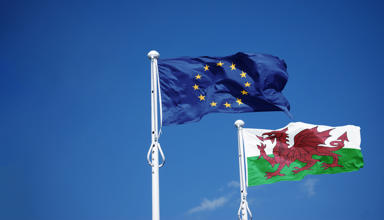The Withdrawal Agreement set the terms for the UK’s exit from the EU. It entered into force on 1 February 2020 but hasn’t been fully implemented.
Some arrangements have never been introduced. There are many reasons for this, including because the UK and EU disagree on them. Where arrangements are in place, there are concerns that progress is unsatisfactory. Other parts have expired, either because the duties have been fulfilled or they’re no longer needed.
This article provides an overview of the Withdrawal Agreement and traces its implementation to date.
What does the Withdrawal Agreement do?
The Withdrawal Agreement deals only with the separation of the UK from the EU and Euratom.
Among other things, it introduced new border and customs arrangements for UK-EU trade and new rules for Northern Ireland. It protects the rights of UK and EU citizens living in the territory of the other. It also established governance arrangements, including how to resolve disputes and enforce its terms.
Importantly, Article 5 is designed to ensure that the UK and EU perform their duties. They must assist each other with tasks “in mutual respect and good faith” and refrain from doing anything which could jeopardise the agreement’s objectives.
Northern Ireland
The Northern Ireland Protocol forms part of the Withdrawal Agreement but not all of its arrangements are in place because the UK and EU disagree on how they should work.
For example, the introduction of border checks has been repeatedly postponed due to issues like infrastructure not being ready. This is true for Wales’ new Border Control Posts which won’t be operational until 2023.
Despite their differences, the UK and EU agree that the Protocol has led to issues in Northern Ireland and they want a resolution. Throughout 2021, they exchanged proposals on how to move forward, described in regular reports provided to the Senedd’s Legislation, Justice and Constitution Committee.
The UK has repeatedly said it could trigger Article 16 of the Protocol, which allows for safeguarding measures to be taken if the Protocol leads to certain difficulties, or to trade diversions. The First Minister warns this would “make a difficult situation worse, not better” and should be avoided.
Our previous article explains how resolving disagreements about the Protocol will have a significant impact on Wales, including its traders, exporters, ports and people.
Stalemate
On 11 May, the BBC reported that the UK formally rejected the EU’s proposals. The previous day, the EU repeated its position that “renegotiation is not an option”.
This all followed the unveiling of UK Government plans for a Brexit Freedoms Bill, included in the Queen’s Speech on 10 May, and the Northern Ireland Assembly elections, in which Sinn Féin became the largest party.
The Bill has not been published but reports say it will allow Ministers to unilaterally disapply the Protocol, even to override the outcome of the ‘democratic consent’ vote granted to the Northern Ireland Assembly for its continued operation. On 12 May, the BBC reported that the UK Government has received legal advice that it would be lawful to override the Protocol.
Citizens’ rights
The UK and EU continue to trade concerns about their citizens living in the territory of the other.
The EU is concerned about the rights of its citizens in the UK being guaranteed by the Withdrawal Agreement or by UK immigration law, and about the automatic loss of residence status in certain circumstances. In January, the EU said it would “consider appropriate next steps”.
The UK’s concerns relate to the different approaches of EU Member States, including unclear guidance, late applications and requirements for proving status. It wants the EU to be more proactive with countries who misapply the agreement.
European citizens’ rights in Wales are monitored by the Senedd’s Equality and Social Justice Committee and Senedd Research publishes regular analysis.
June will be one to watch
As it stands, events in June could match other historic Brexit moments. Key UK-EU meetings are scheduled to discuss the Withdrawal Agreement and the post-Brexit Trade and Cooperation Agreement.
Following the Queen’s Speech, which featured 38 Bills, the UK’s legislatures can expect an exceptionally busy period. The publication of the much-anticipated Brexit Freedoms Bill promises to be yet another landmark episode in Brexit, one which will be watched closely at home and in the EU.
Article by Sara Moran, Senedd Research, Welsh Parliament






